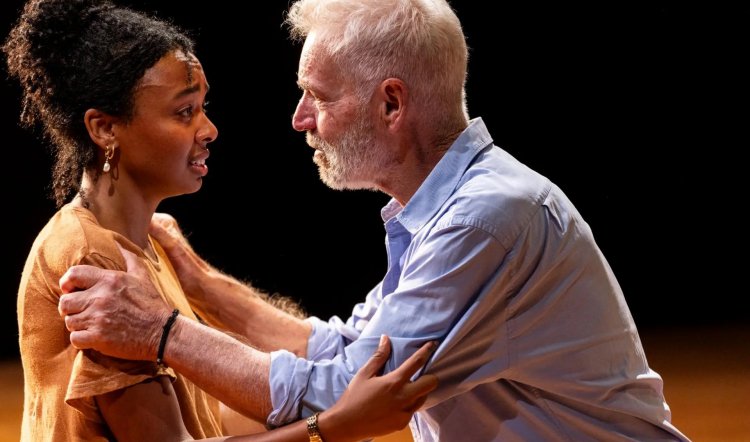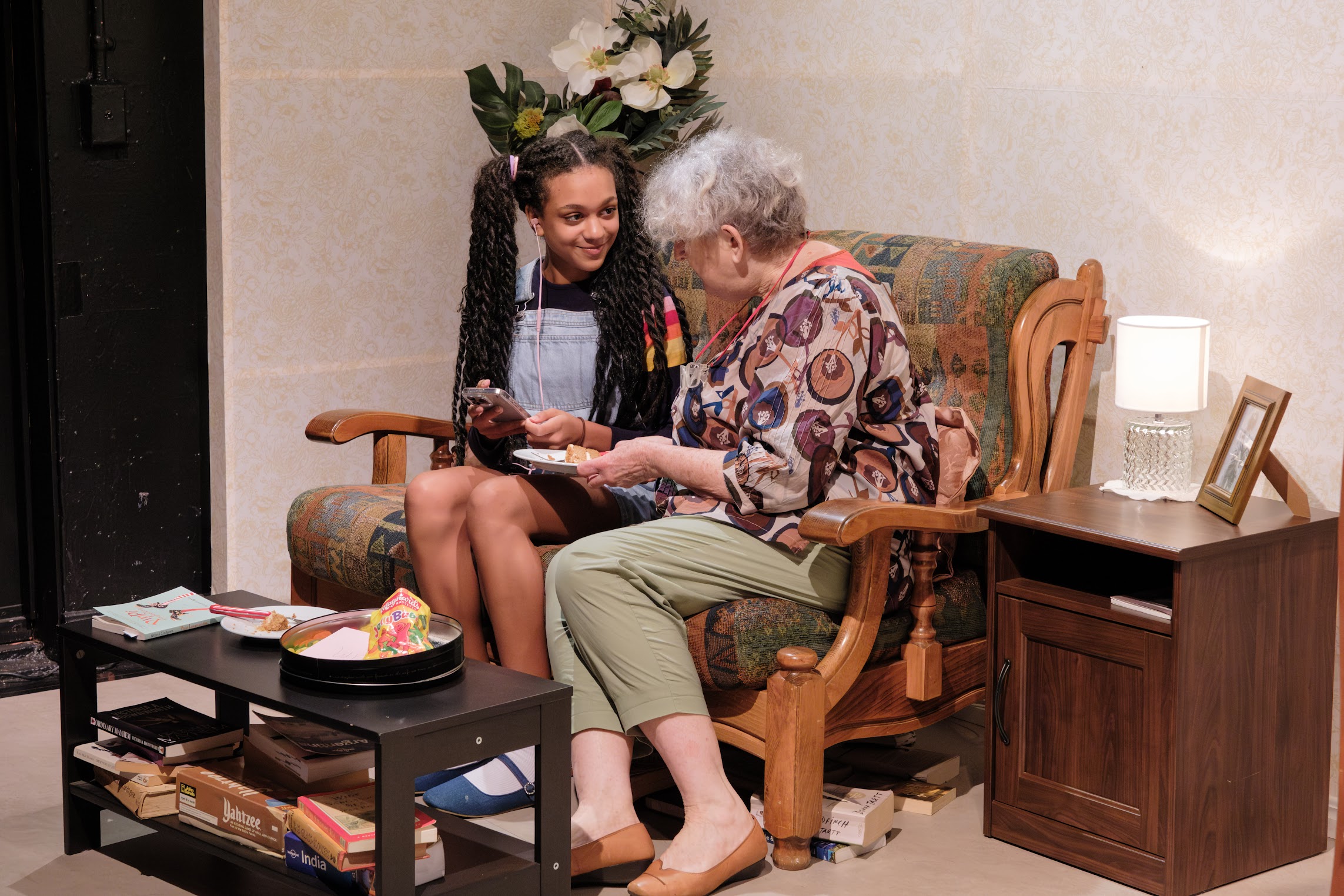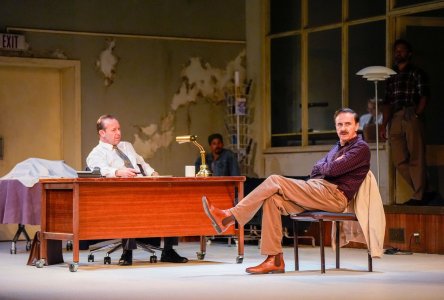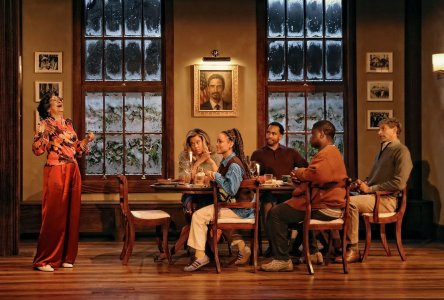
KING LEAR
KING LEAR (The True History of the Life and Death of King Lear & His Three Daughters) Upstairs Belvoir St Theatre, 15 November 2025-4 January 2026. Photography by Brett Boardman
As the audience gathers and settles, the sight of Belvoir’s stage causes comment and laughter between strangers: “The set designer really went to town on this one,” says one. “I really don’t like clutter,” says another. “Do you think he did it for a reduced rate?” The joke is that designer Bob Cousins has taken minimalism literally, with an empty floor of plywood sheets, jigsawed together and unadorned, and 12 nondescript stackable chairs lining one black back wall. Lighting (Morgan Moroney) is much busier, but all in all, the focus is on the actors.
So far, so good, but costume designer James Stibilj has also gone minimal with everyone clad in contemporary, ordinary street clothes. It’s more The Office than a royal court, and this matters because, except for Colin Friels (he’s King Lear and he’s also famously Colin Friels), and Peter Carroll (The Fool and famously Peter Carroll), it’s almost impossible to know who’s who. An opportunity to remedy this comes in the opening moments as the King draws a large circle on the floor in thick, white chalk. Could it be Caucasian? Who knows, but going the full Brecht and hanging name tags around the actors’ necks would have saved a lot of puzzlement.
The daughters are an easier ask. When the ageing Lear decides to abdicate in their favour, he asks which loves him most? As the elder sisters, Regan (Jana Zvedeniuk) and Goneril (Charlotte Friels), do the smarmy thing and pledge love and devotion to their father in return for a slice of the kingdom, Cordelia (Ahumin Abebe) is honest and refuses to praise or flatter her father. In a fit of what we now recognise as Trumpian narcissism, Lear banishes his favourite child. Only tragedy can ensue.

Directed by Eamon Flack, who’s also given it the whimsical and marquee-busting title, Lear moves at dizzying speed from scene to scene, almost as if Shakespeare had written a movie. In and out, and round and round go Edgar (Tom Conroy), Oswald (James Fraser), Edmund (Raj Labade), Kent (Brandon McClelland), France (Conor Merrigan-Turner), Albany (Sukhbir (Sunny) Singh Walia), the Countess of Gloucester (Alison Whyte), and Cornwall (Charles Wu). They plot and scheme to marry or not, to usurp, to grab power, to cheat and betray and generally behave abominably.
The near-impossibility of working out who’s who means it’s not until her eyes are gouged out that it’s really clear Alison Whyte is Gloucester. Meanwhile, she gives the most notable, tender performance of the evening. All others shout and bellow a lot. There are so many more effective – and quieter – ways of indicating anger, hostility, temper, umbrage, and madness. All involve nuance and modulation, but except for Whyte and Ahumin Abebe’s Cordelia, these qualities are almost entirely absent.
It’s exhausting and bewildering. And so is the live music played from a perch high up in a corner. Jess Green on guitar and Arjunan Puveedran on, mainly, a mridangam (South Indian drum) carry on as if a central part of the action. Rather, it’s jarring and distracting, and a weird mix of metal and trad India. At times, the actors have to bellow even harder to be heard over the noise. It’s no wonder Lear goes mad, and not before time (three hours and 15 minutes, plus on Friday night it started 12 minutes late).

There are stirring moments: a raging storm when the despairing old man cries “Blow winds, and crack your cheeks. Rage, blow…” as lightning and thunder dazzle and shake the auditorium is oddly human and plausible. As is Tom Conroy’s banished Edgar, when he adopts the guise of a mad beggar who eats frogs and drinks puddles. As the bastard Edmund, chatting to the audience from time to time and being generally charming, Raj Labade is also a presence. But it’s not until the closing scenes that Whyte’s subtlety and heart permeate those around her that what might have been becomes fleetingly apparent.



